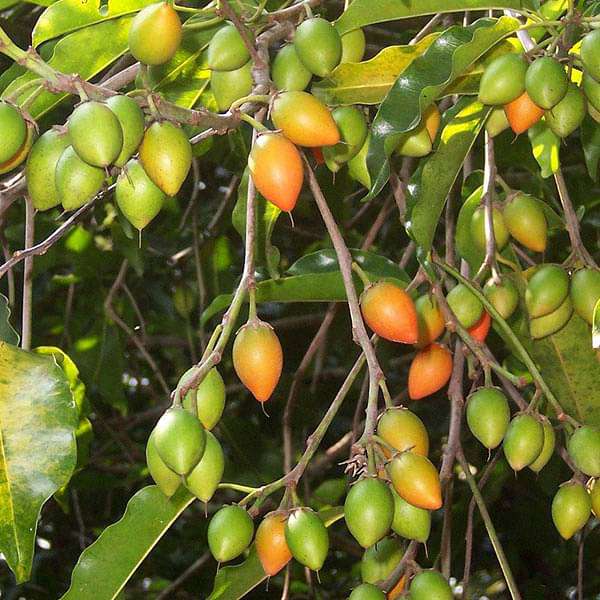
Bakul, Maulsari, Vajradhanthi - Plant
(MRP Inclusive of all taxes)
- Shipping ₹79 for entire order
- Country of origin: India

(MRP Inclusive of all taxes)
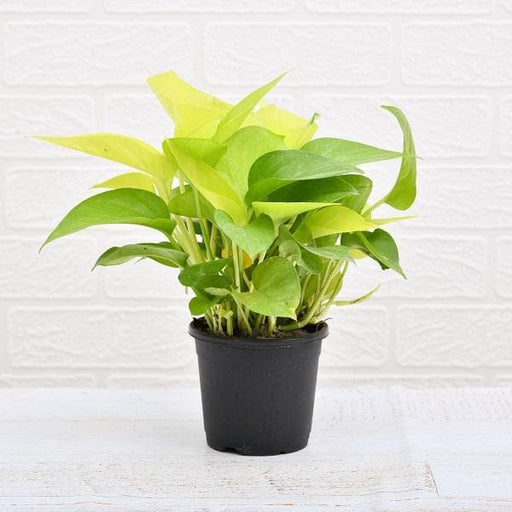 Save 29%
Save 29%
Air Purifier Money Plant with Pot The Air Purifier Money Plant, also known as Pothos or Epipremnum aureum, is a stunning indoor plant that...
View full details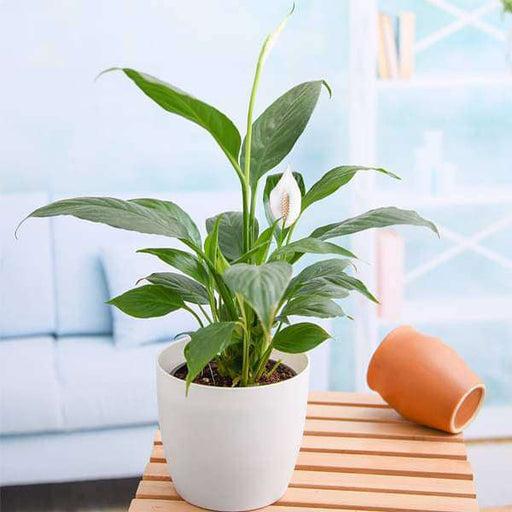
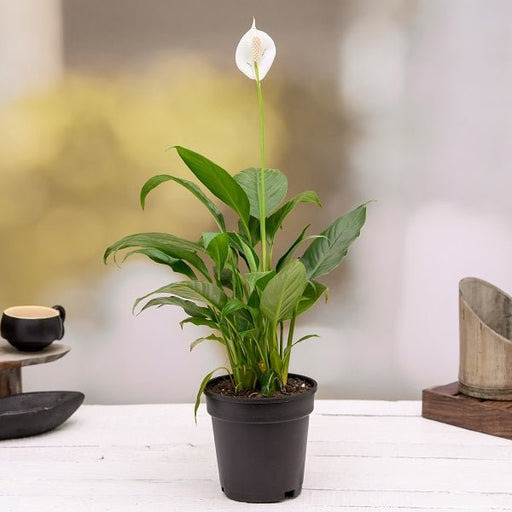 Save up to 15%
Save up to 15%
Peace Lily, Spathiphyllum - Plant The Peace Lily, scientifically known as Spathiphyllum, is a stunning houseplant celebrated for its elegant white...
View full details
 Save 25%
Save 25%
Jasminum sambac, Mogra, Arabian Jasmine - Plant Jasminum sambac, commonly known as Mogra or Arabian Jasmine, is a fragrant flowering plant...
View full details
 Save 18%
Save 18%
Combo Constituents Includes the Parijat Tree (Night-Flowering Jasmine), a culturally significant plant with fragrant flowers. Description The Pari...
View full details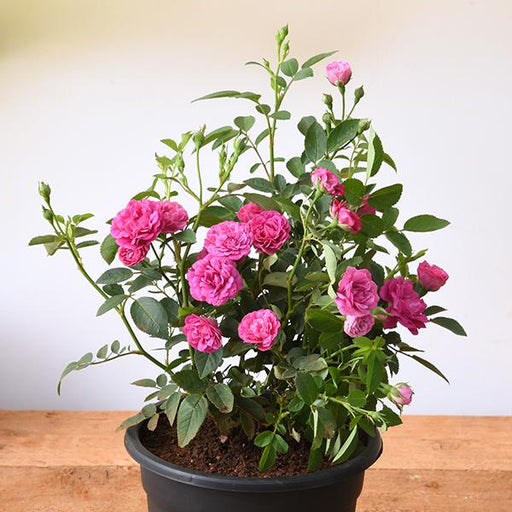
 Save 25%
Save 25%
Miniature Rose, Button Rose (Any Color) - Plant The Miniature Rose, also known as the Button Rose, is a charming and compact flowering plant that ...
View full details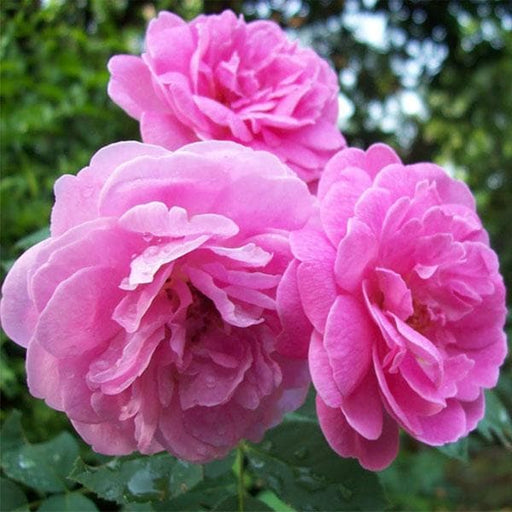 Save 25%
Save 25%
Damascus Rose, Scented Rose (Any Color) - Plant The Damascus Rose, also known as Rosa damascena, is a timeless symbol of beauty and romanc...
View full details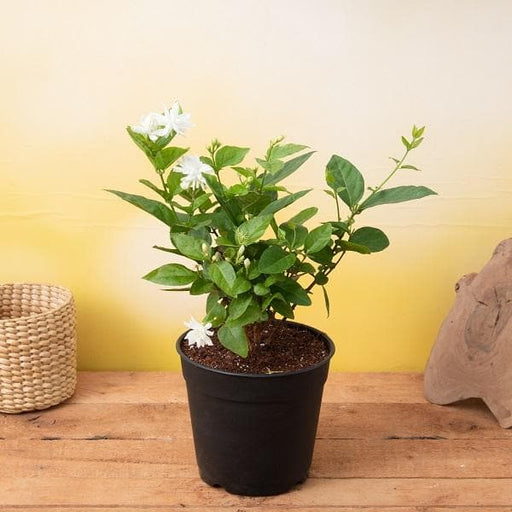
 Save 17%
Save 17%
Beautiful Fragrant Mogra, Arabian Jasmine Plant with Pot The Beautiful Fragrant Mogra, also known as Arabian Jasmine (Jasminum sambac), is...
View full details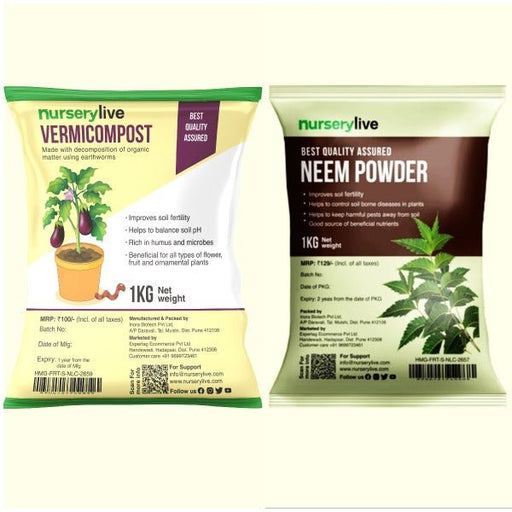 Save 15%
Save 15%
Pack of Vermicompost and Neem Cake for House Plants Transform your indoor garden with our premium Pack of Vermicompost and Neem Cake, spec...
View full details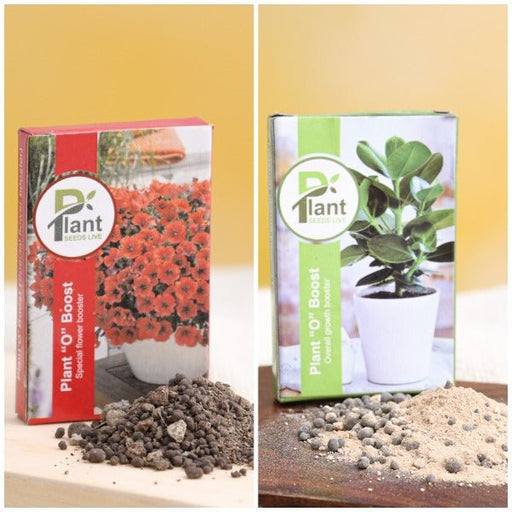
Pack of Plant Growth and Flower Boosters Unlock the full potential of your garden with our Pack of Plant Growth and Flower Boosters! This ...
View full details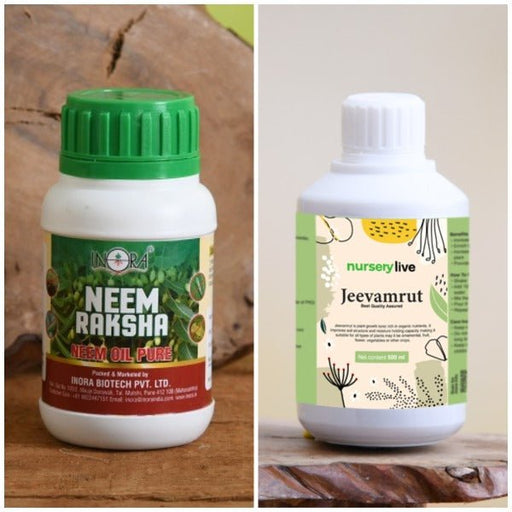 Save 38%
Save 38%
Combo of Jeevamrut and Neem Raksha for Easy Growth and Protection of Houseplants Transform your indoor garden with our exclusive combo of ...
View full details Save 22%
Save 22%
Plant Nutrients Kit (Pack of 16) for a Healthy Garden Transform your garden into a lush paradise with our Plant Nutrients Kit, featuring 1...
View full details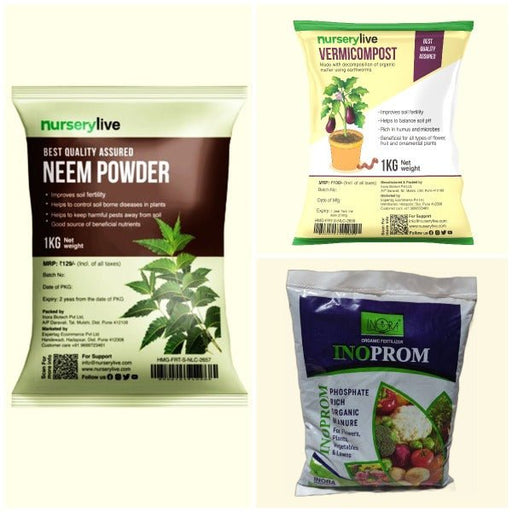 Save 16%
Save 16%
Combo of Top Plant Fertilizers Elevate your gardening game with our exclusive Combo of Top Plant Fertilizers, featuring two bags of premiu...
View full details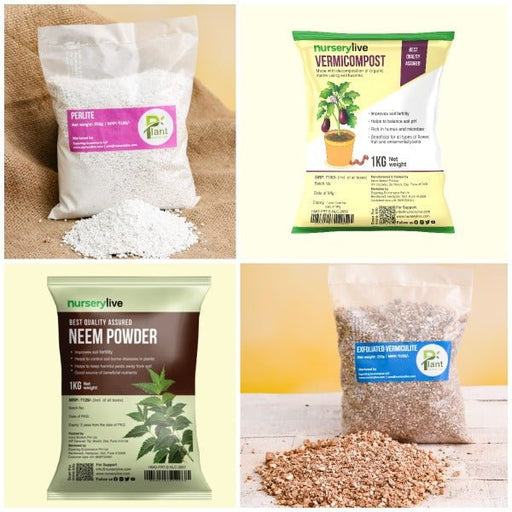 Save 24%
Save 24%
Pack of 4 Additives to Make Soil Healthy and Nutrient Rich Transform your garden into a thriving ecosystem with our Pack of 4 Additives de...
View full details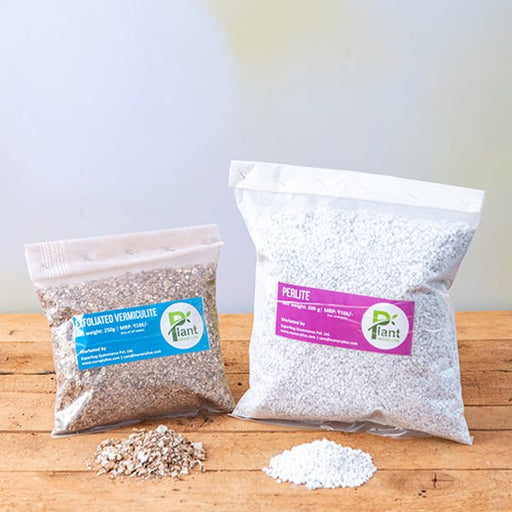 Save 30%
Save 30%
Transform your gardening experience with our premium Combo of Perlite and Vermiculite. This unique blend is designed to enhance soil aeration and ...
View full details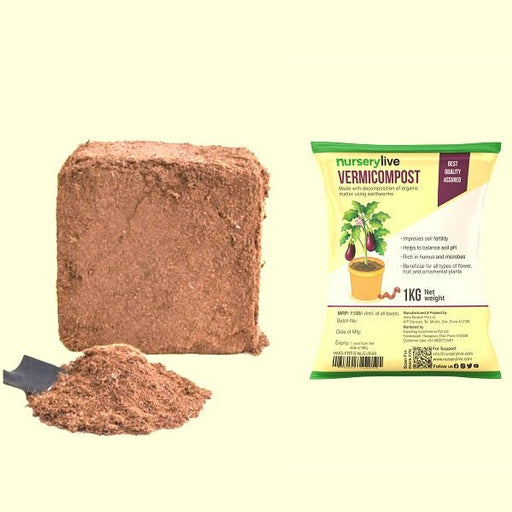 Save 27%
Save 27%
Combo of 2 Vermicompost and Cocopeat - Enrich Your Soil Naturally! Transform your garden into a thriving ecosystem with our Combo of 2 Ver...
View full details
 Save 35%
Save 35%
Best 6 Plants for Perfect Indoor Garden Transform your living space into a lush oasis with our curated collection of the Best 6 Plants for a...
View full details
 Save up to 50%
Save up to 50%
Mini Succulent Garden Pack Transform your space with our Mini Succulent Garden Pack, featuring a delightful collection of 4 any variety beautiful s...
View full details
 Save 30%
Save 30%
5 Best Fragrant Plants Transform your garden or indoor space into a fragrant paradise with our curated selection of the 5 Best Fragrant Plants. Th...
View full details
 Save 24%
Save 24%
Set of 2 Bonsai Looking Grafted Adeniums Transform your indoor or outdoor space with our exquisite Set of 2 Bonsai Looking Grafted Adenium...
View full details Save 45%
Save 45%
Top 4 Die Hard Succulents Pack Transform your indoor or outdoor space with our Top 4 Die Hard Succulents Pack, featuring a curated selecti...
View full details
 Save 30%
Save 30%
5 Best Indoor Plants Pack Transform your living space into a lush oasis with our '5 Best Indoor Plants Pack.' This carefully curated collection fe...
View full details
 Save 25%
Save 25%
Set of 4 Evergreen Air Purifier Plant Pack Transform your indoor space into a lush, green oasis with our Set of 4 Evergreen Air Purifier Pla...
View full details| SrNo | Item Name |
|---|---|
| 1 | Bakul, Maulsari, Vajradhanthi - Plant |
The Bakul, also known as Maulsari or Vajradhanthi, is a revered flowering tree native to the Indian subcontinent. This evergreen plant is celebrated for its fragrant white flowers that bloom in clusters, attracting pollinators and enhancing the beauty of any garden. With its glossy leaves and robust growth, the Bakul tree can reach heights of up to 30 feet, making it a stunning focal point in landscapes.
What makes the Bakul plant special is its cultural significance in various traditions, symbolizing purity and devotion. The flowers are often used in religious ceremonies and are known for their calming fragrance, which is believed to have therapeutic properties. Additionally, the Bakul tree plays a vital role in supporting local ecosystems by providing habitat and food for various species.
Special features of the Bakul plant include its adaptability to different soil types and its resilience to drought conditions. This makes it an excellent choice for sustainable gardening practices. Furthermore, the plant's ability to purify the air contributes positively to the environment, making it a valuable addition to urban and rural landscapes alike.
The Bakul tree, also known as Mimusops elengi, is like the charming introvert of the plant world. With its glossy leaves and fragrant flowers, it quietly steals the show without being too flashy. This tree is a favorite for those who appreciate subtle beauty and the sweet scent of its blossoms wafting through the air. Plus, it’s a great shade provider, making it the perfect companion for lazy afternoons under its boughs. Planting a Bakul is like inviting a gentle friend into your garden who promises to be low-maintenance yet ever so delightful.
Meet the Maulsari tree, or the Mimusops elengi’s more exotic cousin. This tree is the life of the party, boasting vibrant flowers that attract bees and butterflies like a magnet. Its wood is prized for its durability, making it a favorite among craftsmen. But don’t let its sturdy exterior fool you; the Maulsari is also a symbol of love and beauty in many cultures. Planting a Maulsari is like adding a splash of color and a hint of romance to your landscape, ensuring your garden is always buzzing with life.
The Vajradhanthi tree, or the “diamond tree,” is the ultimate multitasker in the plant kingdom. Not only does it provide stunning foliage, but it also has medicinal properties that would make any herbalist swoon. This tree is like the wise old sage of the garden, offering shade, beauty, and health benefits all in one package. Planting a Vajradhanthi is like having a personal wellness coach right in your backyard, reminding you to take a break and enjoy nature’s bounty.
you get a beautiful landscape, and the Earth gets a little TLC.
Sustainable gardening is the eco-friendly superhero of the gardening world. It’s all about growing plants in harmony with nature, using organic methods, and conserving resources. Think of it as gardening with a conscience. By practicing sustainable gardening, you’re not just cultivating plants; you’re nurturing the environment. It’s like hosting a garden party where everyone—plants, insects, and humans—are invited to thrive together. So grab your trowel and join the green revolution!
Native plants are the local celebrities of the gardening scene. They’re perfectly adapted to your region’s climate and soil, making them low-maintenance and eco-friendly. By planting native species, you’re supporting local wildlife and promoting biodiversity. It’s like throwing a welcome party for all the birds, bees, and butterflies in your area. Plus, native plants often require less water and fertilizer, saving you time and money. So why not give these local stars a chance to shine in your garden?
Pollinator gardens are the ultimate buffet for bees, butterflies, and other pollinators. By planting a variety of nectar-rich flowers, you’re creating a haven for these essential creatures. It’s like setting up a five-star restaurant in your backyard, where the menu is all about delicious blooms. Not only do pollinator gardens support biodiversity, but they also enhance the beauty of your landscape. So roll out the red carpet for these tiny guests and watch your garden come alive with activity!
Tree care tips are like the secret sauce for a thriving garden. From proper watering techniques to pruning strategies, these nuggets of wisdom ensure your trees grow strong and healthy. Think of it as a personal training regimen for your plants. With a little love and attention, your trees will reward you with shade, beauty, and even fruit. So grab your gardening gloves and get ready to become the ultimate tree whisperer!
The environmental impact of planting trees is like a ripple effect of goodness. Each tree you plant contributes to cleaner air, reduced soil erosion, and improved biodiversity. It’s like giving back to the planet one sapling at a time. Plus, trees provide shade and cooling effects, making urban areas more livable. By understanding the environmental impact of your gardening choices, you can become a champion for sustainability. So let’s dig in and make a difference, one tree at a time!
Community gardening is the ultimate team sport for green thumbs. It’s all about coming together to cultivate a shared space, grow fresh produce, and foster connections. Think of it as a potluck for plants, where everyone contributes their unique flair. Community gardens not only beautify neighborhoods but also promote social interaction and healthy eating. So grab your gardening buddies and start planting; together, you can create a flourishing oasis that benefits everyone!
Tree planting events are like the block parties of the environmental world. They bring people together for a common cause—greening the planet! Whether it’s a local park or a schoolyard, these events are a fun way to get your hands dirty while making a positive impact. Plus, you’ll leave with a sense of accomplishment and maybe even a new friend or two. So roll up your sleeves, grab a shovel, and join the tree-planting festivities!
Bakul, Maulsari, and Vajradhanthi are the botanical trio that brings fragrance and beauty to your garden. Bakul is known for its sweet-smelling flowers, Maulsari enchants with its aromatic allure, and Vajradhanthi is the showstopper with its lush foliage. Together, they create a botanical symphony that even Mother Nature would applaud!
Caring for these plants is like nurturing a diva! They love well-drained soil, moderate watering, and a sunny spot to shine. Prune them occasionally to keep their shape and encourage growth. Just remember, too much love (or water) can drown their spirits, so keep it balanced and let them bask in the limelight!
Absolutely! These plants are the perfect indoor companions, adding a touch of elegance to your living space. Just ensure they get enough sunlight and fresh air. They’ll thrive in pots, making your home feel like a botanical paradise. Just don’t forget to give them a little pep talk now and then!
These plants are not just pretty faces; they offer a bouquet of benefits! They purify the air, attract pollinators, and their fragrant flowers can uplift your mood. Plus, they make excellent conversation starters at dinner parties. Who wouldn’t want to discuss the wonders of Bakul, Maulsari, and Vajradhanthi over dessert
While they may look tempting, these flowers are more for the eyes than the taste buds. Bakul and Maulsari are primarily ornamental, and Vajradhanthi is best left to grace your garden. So, admire their beauty, but save your appetite for something a bit more culinary—like a slice of cake!
Watering is an art, not a science! These plants prefer a moderate approach—think Goldilocks, not too much, not too little. Water when the top inch of soil feels dry, and let them soak up the goodness. Overwatering can lead to root rot, and nobody wants a soggy plant drama!
Like any star, these plants can attract a few unwanted fans! Watch out for aphids, spider mites, and mealybugs. They may try to crash the party, but a gentle spray of insecticidal soap or neem oil can send them packing. Keep your plants pest-free, and they’ll continue to shine!
Yes, you can! Propagation is like creating mini versions of your plant pals. Take cuttings from healthy stems, let them root in water or soil, and watch them flourish. It’s like a botanical family reunion, and soon you’ll have a whole garden full of fragrant friends to enjoy!
These plants prefer well-draining soil that’s rich in organic matter. Think of it as their luxurious spa treatment! A mix of potting soil, compost, and perlite will keep their roots happy and healthy. Just like us, they don’t like to sit in soggy conditions—drainage is key to their happiness!
These floral beauties typically bloom during the warmer months, putting on a fragrant show that’s hard to resist. Depending on the climate, you can expect blooms from spring to early fall. So, mark your calendars and prepare for a floral fiesta that will have your garden smelling divine!
While they appreciate a good drink, these plants can handle a little drought. Once established, they can survive short dry spells, but don’t push your luck! A little water goes a long way in keeping them vibrant and happy. Think of it as a refreshing spa day for your leafy friends!